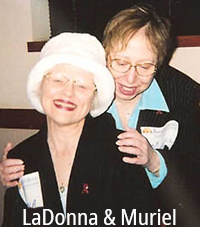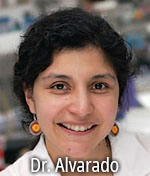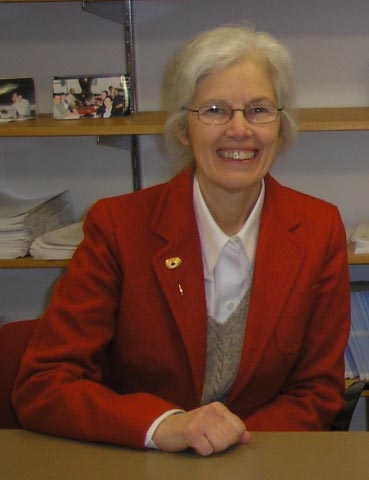About Amyloidosis Support Groups
 Welcome to the Amyloidosis Support Groups website. We hope you will find everything you need to know about
what is happening in the world of support and awareness for Amyloidosis patients, care givers and those who
have lost some one to this insidious disease.
Welcome to the Amyloidosis Support Groups website. We hope you will find everything you need to know about
what is happening in the world of support and awareness for Amyloidosis patients, care givers and those who
have lost some one to this insidious disease.
Support can come in many forms. When one is diagnosed with a rare disease such as amyloidosis; just
seeing the word amyloidosis on an 8 1/ 2 by 11 sheet of colored glossy paper next to the words, “YOU ARE
NOT ALONE” or “MEETING” can be supportive. The diagnosis can be a punch in the gut to hear; but
to then to walk out of the office and not see a brochure, or any piece of “official” paper among the
hundreds in the doctor's office or clinic, with the word “AMYLOIDOSIS”, can be the biggest let down
of all.
The first Amyloidosis Support Group Meeting was held March 13, 2004, in Dallas, TX. It was-c hosted by La
Donna Stockstill of Weatherford, TX, Maurice and Carole Price of Dallas, and Muriel Finkel of Wood Dale, IL.
La Donna has Amyloidosis and Wald Enstrom's. She sadly passed away a few years ago. Maurice had AL
amyloidosis and passed away in 2009. Muriel's Uncle Norman Shurmaster had died the previous year of AL
Amyloidosis.
Non Profit Corporation
The ASG is a 501 (c)3 Non-Profit Corporation, effective May 2005, dedicated to the Support of Amyloidosis
patients and care givers and former care givers. Our goals are to set up and help maintain peer group
Amyloidosis Support Group Meetings and webinars to help educate and empower amyloidosis patients and their
loved ones.
FEDERAL FORM 990 AND CONFLICT OF INTEREST STATEMENT AVAILABLE UPON WRITTEN REQUEST
Amyloidosis Support Groups Inc.
232 Orchard Drive
Wood Dale IL 60191
The President of the Amyloidosis Support Groups is Muriel Finkel, Vice President Jennifer L. Celano,
Treasurer Stephen D. Finkel, Secretary Elinda Lado. For more information you may e-mail
muriel@amyloidosissupport.org or call toll free USA 866-404-7539
MISSION STATEMENT
Amyloidosis Support Groups Inc., a 501 (c) 3 nonprofit corporation (will be referred to as the A.S.G. for
this report) was formed for the primary purpose of starting and maintaining Amyloidosis Support Groups
throughout the United States, dedicated to providing peer group support to patients, caregivers, families
and friends of those touched by this life threatening disease.
GOALS AND OBJECTIVES
- To form Amyloidosis Support Groups where needed and to have all Amyloidosis Support Groups be
self-sustaining through donations (general, memorial, note cards and other awareness items)
- To fund and maintain libraries of educational materials for all support groups. see www.AmyloidAware.com
- To fund group projects that will help in spreading awareness, co-sponsor Amyloidosis treatment and
research fundraisers, and encourage grand rounds be held on amyloidosis at local hospitals and help to
encourage money be raised for such projects.
- To purchase and provide awareness items such as pins, wristbands and other similar items for
meetings, memorials, and fundraisers To help finance the annual educational retreat for training new
and current group leaders and facilitators
- To maintain a TOLL FREE “Hot/Help Line” to answer all support inquires.
- To provide on-going maintenance and informational updates on the A.S.G. web-site (www.amyloidosissupport.org).
- To promote, monitor and help maintain closed private support groups on Facebook
- To liaison and form alliances with other amyloidosis organizations, and rare diseases through NORD
(www.rarediseases.org) and with federal, state, local and private agencies involved with rare diseases
for advocate and coalition purposes.
- To distribute information concerning Amyloidosis symposiums, meetings and clinical trials.
- To help patients get to support meetings and treatment centers when possible and financially
feasible

The ASG Medical/Science Advisors
Our advisors are "working" advisors and not just names on a web site or letterhead. We are proud to say
that we have met every one of them, and they have all contributed to the groups and answered questions.
We ask them for medical advice and counsel and could not run the support groups or help the people on the
list/serv without them. We now have more than 50 medical advisors and have listed those advisors that have
been with us for more than 15 years.:
The President of the Amyloidosis Support Groups is Muriel Finkel, Vice President Jennifer L. Celano,
Treasurer Stephen D. Finkel, and Secretary Joe Gibson. Our executive director is Paula Schmitt. For more
information about Amyloidosis Support Groups you may e-mail muriel@amyloidosissupport.org or call toll free USA
866-404-7539.
Medical Guest Column
By Martha Skinner, MD
 It is a pleasure to write a note for the first issue of the Amyloid Support Group Website. Over the past
year I have watched the ASG develop and I have been amazed at the energy and commitment of Muriel Finkel
and her team of leaders. Support groups dotting the United States, and indeed the world, are an important
resource for all patients with amyloidosis, and especially for those with a new diagnosis who have so much
to learn and often not much time to become informed.
It is a pleasure to write a note for the first issue of the Amyloid Support Group Website. Over the past
year I have watched the ASG develop and I have been amazed at the energy and commitment of Muriel Finkel
and her team of leaders. Support groups dotting the United States, and indeed the world, are an important
resource for all patients with amyloidosis, and especially for those with a new diagnosis who have so much
to learn and often not much time to become informed.
I became acquainted with amyloid diseases early in my medical career. At that time amyloid diseases were
diagnosed clinically and called “primary” if no underlying disease was known, “secondary” if the patient
had chronic inflammation, and “familial” if there was a family history. The 1970s was the period when the
more common systemic amyloid disease proteins were identified biochemically. Patients were grateful that
physicians and researchers found their disease interesting, even though little was known about the disease
and even less could be done to help.
Tremendous changes have occurred since then. A Nomenclature Committee was formed at the 2nd International
Symposium in 1976. The Committee has met at the subsequent meetings and now lists 25 different human
amyloid proteins. During the decade of the 1980s researchers found markers of each disease that helped
diagnose the type after a biopsy showed amyloid tissue deposits. And in the 1990s aggressive treatments
were pioneered that have made a big difference for some patients, and for the first time offered hope for
those who suffer from this devastating disease.
What will this decade hold? It is our goal that basic research will help us understand “why” amyloid
fibrils form, and why they deposit in major organs causing life-threatening illness. Basic understanding
will lead to the development of “smart” therapies that will be specific for each type of amyloidosis. Some
are already in clinical trials, such as, Fibrillex for AA amyloidosis, immunomodulary drugs (Revlimid and
Velcade) for AL amyloidosis, and Diflunisal which will soon be tested for TTR amyloidosis. This will be
the decade of better treatments that are available for all.
How can support groups help? Those of you who have been through your own or a loved one's illness know the
anxiety that comes with the diagnosis of amyloidosis. You know how hard it is for families! Support groups
have the important mission of letting patients and families know they are not alone. They surround
patients and families with love and attention, and give of their experience and wisdom. It is a valuable
and wonderful gift of genuinely caring! Physicians and patients are grateful to all of you.
Martha Skinner, MD
Professor of Medicine
Amyloid Program Director
Boston University
School of Medicine
www.bu.edu/amyloid
The Importance of Support and Patient Advocacy Groups
By Dr. Morie Gertz, Mayo
Clinic.
It is worthwhile commenting on the value that an advocacy group, such as the Amyloidosis Support Group,
provides to our patient population. As many of you know, amyloidosis is not widely recognized in the
patient or in the physician community and most individuals react with “what is it”? Current technologies
that allow patients to log on to a web site and get the immense amount of information available at
www.amyloidosissupport.com provides immeasurable benefit to patients who frequently are in an information
vacuum, unable to learn what the future holds.
When using a support group patients can find out about the newest techniques and technologies and locate
centers where a comfort level dealing with amyloidosis exists. Fortunately, the outlook for patients with
amyloidosis has improved substantially since I began working for Dr. Kyle in 1979 and for Dr. Skinner in
1982. In that era Colchicine and oral Melphalan covered the treatment waterfront. Fortunately, today new
technologies and new protocols offer hope for newly diagnosed and previously treated patients. The good
news is that new agents are in continuous development and are under active testing. Frequently the
information exchange available in a support group can lead patients to make decisions with regard to
therapies that are suited to their temperament, personality and ability to complete. Often times
physicians who do not see large numbers of amyloid are not able to keep current on what new therapies are
available, which is an important benefit of communication within the support group.
The rarity of amyloidosis means that most practicing physicians will never see a patient with the disease
and most practicing hematologists will never see sufficient numbers to really have a feel for the
disorder. They often are forced to make decisions based on text book descriptions, which can be out of
date due to the turnover time required for publication. As in all fields, the best teacher is experience
and medicine remains an art with four years of apprenticeship in medical school and often times up to
seven years of journeyman training before one is ready to be a master of the art. There is hope. Hundreds
of research papers on amyloidosis are currently being published annually. It is one of the few rare
diseases that has a journal completely dedicated to itself, edited by Dr. Alan Cohen. Many support groups
sponsor travel awards for young scientists to motivate their interest and a number will be attending the
next amyloidosis meeting in Woods Hole, Massachusetts to learn and discuss new scientific discoveries in
amyloidosis. It is exciting to know there are individuals dedicated to solving the mystery of amyloidosis.
There were 200 scientist/physician attendees at the last international meeting.
Support groups allow patients and their families to educate themselves and knowledge is power. It is worth
remembering that information can be confusing and sometimes there are testimonials on the web that do not
meet the standards for scientific publication, but sometimes even hearsay information is better than none
at all. When reading about amyloidosis it is important to not over-interpret statistics because they are
not very helpful at an individual level and even experts can have honest disagreements about the role of
the various available therapies.
How can you help yourself? First, ask questions. Your physician should not feel threatened. You need to be
satisfied with the answers and the explanations, even if the news is not always good. Patient advocacy
groups play an enormous role. Site information is frequently filtered for accuracy and can be used to
direct learners to the best resources available. The talk list allows patients to ask each other questions
and reinforce common issues, as well as provide emotional support. Since members are dealing with other
patients with the disease, there is a wealth of experience and empathy that is available. Support groups
can also link to other resources on the disease and frequently have arms that support research. Full
access to information is important for patients to make informed choices. Support group meetings are
useful for educational purposes (but not to get a free second opinion). It is important to attend to your
lifestyle. Do you exercise daily? How are you coping emotionally with your diagnosis? Are you eating
healthy? Do you live a healthful daily routine?
How can you help? Participation in clinical trials of amyloid treatment are useful. There is no animal
model of amyloidosis to test new treatments. Patient volunteers are required to develop better treatment
for future generations. Let the next important breakthrough be tested on you. Ask your physician if you
can participate in a trial of therapy. This information will certainly help others with the disease and
you, therefore, contribute by providing hope to other patients, which is a uniquely human trait.
Amyloidosis Support Groups Statement on Diversity, Equity, and Inclusion
Amyloidosis Support Groups (ASG) is committed to and accountable for advancing diversity, equity, inclusion, and sustainability in all its forms. We embrace individual uniqueness, foster a culture of inclusion that supports both broad and specific diversity initiatives, leverage the educational and institutional benefits of diversity in society and nature, and engage all individuals to help them thrive. We value inclusion as a core strength and an essential element of our public service mission.
At ASG:
- We will foster and maintain a safe environment of respect and inclusion for our volunteers, and members of the communities we serve.
- We will educate our volunteers to be social justice advocates, creatively providing curricula, programs, and environments that reflect the diversity of our communities, and elevate cultural awareness.
- We will ensure fair and inclusive access to our meetings, programs, resources, and services, and ensure that all our policies and practices are inclusive and equitable.
- We will advance and build the ASG by attracting, retaining, and developing talented volunteers from diverse backgrounds.
 It is a pleasure to write a note for the first issue of the Amyloid Support Group Website. Over the past
year I have watched the ASG develop and I have been amazed at the energy and commitment of Muriel Finkel
and her team of leaders. Support groups dotting the United States, and indeed the world, are an important
resource for all patients with amyloidosis, and especially for those with a new diagnosis who have so much
to learn and often not much time to become informed.
It is a pleasure to write a note for the first issue of the Amyloid Support Group Website. Over the past
year I have watched the ASG develop and I have been amazed at the energy and commitment of Muriel Finkel
and her team of leaders. Support groups dotting the United States, and indeed the world, are an important
resource for all patients with amyloidosis, and especially for those with a new diagnosis who have so much
to learn and often not much time to become informed.


 Welcome to the Amyloidosis Support Groups website. We hope you will find everything you need to know about
what is happening in the world of support and awareness for Amyloidosis patients, care givers and those who
have lost some one to this insidious disease.
Welcome to the Amyloidosis Support Groups website. We hope you will find everything you need to know about
what is happening in the world of support and awareness for Amyloidosis patients, care givers and those who
have lost some one to this insidious disease.


